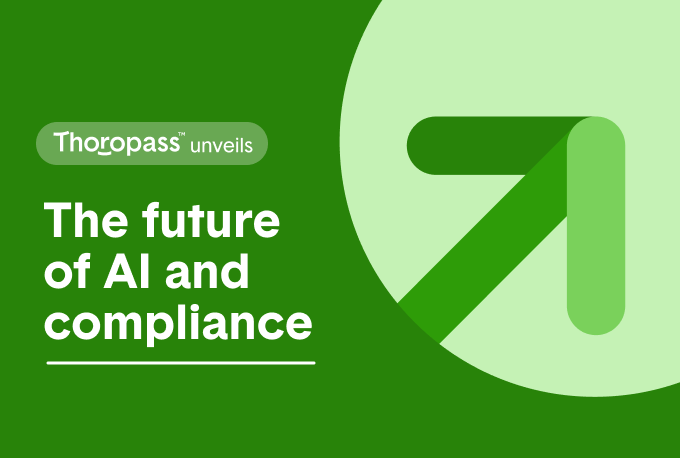AI governance is the process by which organizations and societies regulate artificial intelligence to ensure its ethical, fair, and abides by legal application.
With artificial intelligence (AI) shaping critical aspects of life and business, governance stands as a guardian of values and norms in the burgeoning digital age. This article will guide you through the importance, approaches, and impact of AI governance, providing insight into its role in our increasingly AI-driven world.
Key takeaways
- AI governance encompasses ethical, legal, and societal frameworks. It aims to ensure AI technologies are used responsibly, transparently, and fairly, with an emphasis on maintaining societal trust and upholding organizational and societal values.
- Responsible AI practices require adherence to ethical guidelines, legal compliance, risk management, and the integration of human oversight, emphasizing the prevention of biases and the importance of transparency and control over AI systems.
- Trustworthy AI relies on pillars such as transparency, accountability, fairness, security, and privacy protection, guided by evolving legal frameworks like the GDPR, innovative governance structures for continuous adaptation, stakeholder engagement, and emerging government regulations like the EU AI Act.
Understanding AI governance
AI governance. This term encompasses the complex set of regulations, policies, and standard practices that guide the ethical, responsible, and lawful employment of AI technologies. The objective within this domain is two-fold:
- Maximize the benefits offered by AI, while simultaneously
- Addressing a multitude of challenges, including data security breaches and moral dilemmas.
As AI prevalence increases across various sectors, it becomes paramount to uphold public confidence by ensuring transparency and accountability in how AI systems operate. The evolution of AI will inevitably be shaped by a confluence of factors, such as advances in technology, prevailing societal norms/values, and ongoing international partnerships.
Defining AI governance
The continuum of AI governance ranges from less structured to highly formalized systems, designed specifically to tackle the ethical implications associated with AI technologies. Governance that is informal typically originates from a company’s core values and might include ethics committees that operate without strict frameworks.
On the other hand, ad hoc governance presents itself as a more defined system set up to address particular challenges linked to AI by creating explicit policies, practices, and protocols for governance.
AI governance aims and objectives
AI governance aims to ensure that AI’s benefits are widely accessible, that AI initiatives resonate with societal values, and that responsible AI is promoted. Upholding principles such as fairness, transparency, and accountability is essential for integrating ethical considerations into business goals within every application of artificial intelligence.
The scope of governance around AI technologies
Governance of AI is an extensive field that includes ethical, legal, societal, and institutional dimensions. It devises strategies to guarantee that AI operations conform to organizations’ objectives while adhering to ethical norms. The governance approach differs across regions, from the thoroughgoing EU AI Act to emerging structures in the U.S., yet it converges on a unified objective: preemptively handling risks and safeguarding public well-being.
As AI technologies progress swiftly and have widespread effects internationally, it is imperative to adopt a judicious method for governing AI. Such governance must encourage creativity while simultaneously mitigating hazards and maintaining social values.
Why we really need AI governance
AI governance is not merely a set of guidelines; it’s a necessity in the modern era, where AI systems profoundly influence various aspects of our daily lives. The need for AI governance stems from the potential risks and ethical dilemmas posed by autonomous systems. Without proper governance, AI could exacerbate social inequalities, invade privacy, or make unaccountable decisions with far-reaching consequences.
Let’s look at some of the key reasons AI governance is considered essential:
- Monitoring ethical implications: AI systems wield significant influence on individuals and society. Lacking governance, these systems may perpetuate existing prejudices, violate privacy rights, and make decisions that could be considered unethical.
- Maintaining safety and dependability: Ensuring AI systems are dependable and harmless is vital, particularly in essential domains like healthcare, transportation, and banking. Governance is the mechanism that certifies AI systems undergo rigorous testing and continuous oversight to avert damage or dysfunction.
- Ensuring accountability: Tracing the reasoning behind AI-driven decisions can be challenging. Governance structures are crucial for attributing responsibility and establishing a transparent chain of accountability when adverse events occur.
- Building public trust: The successful adoption and societal integration of AI hinge on public confidence in its responsible usage. Governance reinforces this confidence by promoting open practices in the development and application of AI technologies.
- Avoiding misuse: There is potential for AI to be exploited for deceitful activities, surveillance, and other harmful intents. Governance acts as a defense against such exploitation.
- Setting global standards: As AI technologies transcend national boundaries, global governance is key to setting universal standards and averting a competitive decline in ethical practices among nations or corporations.
Navigating legal frameworks and regulations around AI
The establishment of AI governance is based on a foundation of legal frameworks and regulations designed to oversee the creation and implementation of artificial intelligence (AI) systems. Across the globe, there exists a varied regulatory environment for AI, highlighted by national approaches such as that adopted by Singapore and legislation like the European Union’s Artificial Intelligence Act that steers how AI is utilized.
With the advancement in AI technology comes an increase in the complexity surrounding compliance with laws and regulations, bringing up new challenges, including algorithmic accountability and consideration of what roles legal professionals will play going forward.
Understanding AI regulation
Regulation of AI is encompassed by both global and domestic structures. Legislation such as the GDPR exerts influence on AI by enforcing rigorous protections for personal data and privacy across the European Union. The EU, along with organizations like UNESCO, has crafted policies and ethical guidelines that emphasize human-centered principles in the development of AI.
The rapid escalation in data acquisition and analysis has raised apprehensions regarding individual privacy, necessitating stringent management and compliance with regulatory standards such as those established by the GDPR.
Below, we’ve listed some of the key Al regulations and regulatory proposals in 2025.

Name: AI Bill of Rights
Region: U.S.
Description: Focuses on ensuring fairness, privacy, and transparency in AI systems.
More Info: Link
Name: Algorithmic Accountability Act
Region: U.S.
Description: Mandates impact assessments for AI systems used in critical sectors such as finance and healthcare.
More Info: Link
Name: Digital Services Oversight and Safety Act
Region: U.S.
Description: Mandates transparency reports, algorithmic audits, and accountability measures to protect consumers and ensure safe use of digital services.
More Info: Link
Name: DEEP FAKES Accountability Act
Region: U.S.
Description: Requires creators and distributors of deepfake technology to include watermarks indicating altered media.
More Info: Link
Name: NIST’s AI Risk Management Framework
Region: U.S.
Description: Emphasizes a risk-based approach to ensure AI technologies are trustworthy, fair, and secure.
More Info: Link
Name: Artificial Intelligence and Data Act (AIDA)
Region: Canada
Description: Aims to regulate the use of AI for protecting personal data and ensuring ethical use.
More Info: Link
Name: Pan-Canadian Artificial Intelligence Strategy
Region: Canada
Description: Enhances investments in AI research while emphasizing ethical standards and inclusivity.
More Info: Link
Name: European Union’s Artificial Intelligence Act
Region: EU
Description: Comprehensive framework categorizing AI systems into risk levels (unacceptable, high, limited, minimal) and imposing strict requirements on high-risk systems.
More Info: Link

Recommended Reading
Understanding the EU AI Act
Unpack key provisions and future impacts of the European Union’s new Artificial Intelligence Act
Name: Digital Services Act (DSA)
Region: EU
Description: Addresses the accountability of online platforms, including AI-driven services, focusing on transparency and user safety.
More Info: Link
Name: National AI Strategy
Region: UK
Description: Focuses on maintaining leadership in AI innovation while promoting ethical AI and robust safety standards.
More Info: Link
Name: AI White Paper
Region: UK
Description: Proposes flexible regulatory frameworks to encourage innovation while ensuring AI technologies are trustworthy and transparent.
More Info: Link
Name: AI Development Plan
Region: China
Description: Emphasizes becoming a global leader in AI by 2030, with a focus on innovation, data protection, and international collaboration.
More Info: Link
The interplay between AI governance and laws
The governance of AI is deeply intertwined with legal structures. Legislation dictates the application of AI, while simultaneously, AI systems are deployed to manage and comply with multifaceted legal regulations. In America, government-led efforts and directives from entities such as the Federal Trade Commission bolster governance related to AI, illustrating how closely linked law and governance truly are.
Incorporating AI into strategies for governance, risk management, and compliance is crucial for adeptly maneuvering through these complex regulatory environments.
Fostering innovation within legal constraints
Legal regulations provide both limitations and inspiration for AI development, driving the creation of solutions that not only comply with but surpass legislative expectations. The EU AI Act and GDPR stand as exemplary examples of regulations that encourage the production of AI systems that are secure, reliable, and safe. AI systems are crafted to ensure adherence to legal norms, showcasing a harmonious relationship between innovation in technology and compliance with the law.
It is crucial to maintain a balance between rapid technological advancement and rigorous adherence to ethical and legal principles to foster sustainable innovation in artificial intelligence.
Establishing responsible AI practices in your business
Organizations must embed ethical considerations within their AI governance frameworks to guarantee the responsible application of AI’s potential. This requires not merely the creation of ethical guidelines but also adherence to legal standards and risk management pertaining to AI deployment. Achieving this AI GRC management lays down a solid base for fostering responsible AI development.
The role of AI ethics boards
Corporate AI ethics boards focused on AI play a critical role in maintaining the integration of ethical considerations within these evaluation metrics. They do so by implementing Key Performance Indicators (KPIs), which include measures like rate of bias detection and scores related to adherence to ethics.
Ethics boards focused on corporate AI have a crucial role in upholding ethical standards, which include:
- Assessing whether AI systems adhere to established ethical guidelines and principles.
- Being composed of individuals with varied areas of expertise.
- Recognizing and reducing potential ethical risks associated with AI use.
- Guaranteeing that AI endeavors are aligned with the norms expected by society.
Crafting ethical guidelines
Established on the foundation of universal principles, ethical guidelines for AI dictate that developers and regulators create AI systems that promote fairness, transparency, and privacy protection. These ethical AI practices are not static. Rather, they’re integrated into all stages of the life cycle of an AI system—including design, deployment, and ongoing supervision.
Ensuring high-quality data governance practices to prevent historical biases from infiltrating datasets is a critical component in fostering non-discriminatory ethical practices throughout the development of AI. Constructing centers dedicated to excellence in AI demonstrates a forward-thinking approach towards managing governance over these intelligent systems. Such hubs unite various experts to carefully consider both costs and ramifications brought about by increasing automation levels.
Ensuring compliance and risk management
Navigating the intricate landscape of AI regulations and data protection statutes is a crucial component of governing AI, essential to mitigating legal exposure and cultivating ethical practices in managing data.
Employing artificial intelligence for predictive analytics within risk management — key for detecting potential system malfunctions or regulatory non-compliance — underscores the importance of utilizing high-grade training datasets. This ensures biases are minimized, guaranteeing that decisions made by AI align with human ethical standards.

AI pentesting offering
Thoropass's AI pentesting offering ensures secure and ethical use of AI
Manage AI-related risk and ensure compliance with new and emerging AI frameworks with AI pentesting.
Incorporating human oversight
Within the realm of AI governance, ensuring that human oversight is integral acts as a safeguard to keep AI systems in check and accountable, especially when there are instances of mistakes or harm. Having an established process for appeals and human evaluation of decisions made by AI is crucial not just for retaining control over results but also for shielding institutions from the reputational harm that could stem from biases or inaccurate information.
Implementing effective AI governance strategies
To ensure responsible AI systems are managed effectively, a strategic approach to AI governance is essential. This includes the establishment of robust structures for responsible AI governance that offer specialized knowledge, attention to detail, and clear responsibilities—alongside ongoing evaluation of data quality and results.
The commitment to shaping society beneficially via artificial intelligence is embodied by the AI Governance Alliance. Its role in promoting innovation throughout various sectors underlines this dedication.
Continuous monitoring and adaptation of AI systems
Consistent supervision is crucial in the realm of AI governance to spot any discrepancies in performance, maintain accountability logs, and uphold adherence to regulatory standards.
To prevent declines in functionality and certify that the desired results are achieved, it’s essential that organizations conduct ongoing surveillance, refinement, and verification of their AI models. The implementation of artificial intelligence for automated oversight concerning compliance can be an effective strategy to meet intricate regulatory requirements including privacy laws such as GDPR.
Assessing both the economic returns and supplementary benefits yielded by artificial intelligence offers quantifiable indicators that gauge fiscal prudence as well as extra gains provided by these services.
Conclusion: Effective and ethical AI management is key
As we navigate the complexities of AI governance, it is clear that while challenges abound, the roadmap for ethical and effective AI management is being charted with a focus on trust, transparency, and legal adherence.
By implementing robust governance frameworks and engaging in continuous dialogue and innovation, we can ensure that AI serves the greater good, reflecting our highest values and standards.
More FAQs
What is AI governance?
The concept of AI governance encompasses a structured set of guidelines and practices aimed at the ethical, responsible, and lawful deployment of artificial intelligence. By emphasizing principles such as fairness and transparency, AI governance addresses risks while enhancing benefits to ensure that the application of AI resonates with societal values and objectives.
Why is human oversight important in AI governance?
Human oversight is a central component of AI governance, and it is necessary to maintain accountability, ensure ethical decision-making, and uphold trust in AI systems.
How do AI ethics boards contribute to AI governance?
Diverse teams that make up AI ethics boards play a pivotal role in AI governance by maintaining ethical standards, evaluating the conformity of AI systems to established ethical guidelines, and guaranteeing they meet societal expectations for oversight.
Can legal frameworks foster innovation in AI?
Legal frameworks can foster innovation in AI by inspiring robust and creative solutions that meet regulatory requirements, resulting in more reliable and trustworthy AI systems.
How does stakeholder engagement influence AI governance?
By involving stakeholders, AI governance is enhanced through the promotion of transparency, consideration of a variety of viewpoints, and the establishment of more inclusive and accountable policies for AI development.
Enter the AI era
Explore GenAI for your business, safely and securely
Explore the suite of new offerings from Thoropass to help your organization set itself up for success in this new era of GenAI and compliance

Related Posts
Stay connected
Subscribe to receive new blog articles and updates from Thoropass in your inbox.
Want to join our team?
Help Thoropass ensure that compliance never gets in the way of innovation.














.png)